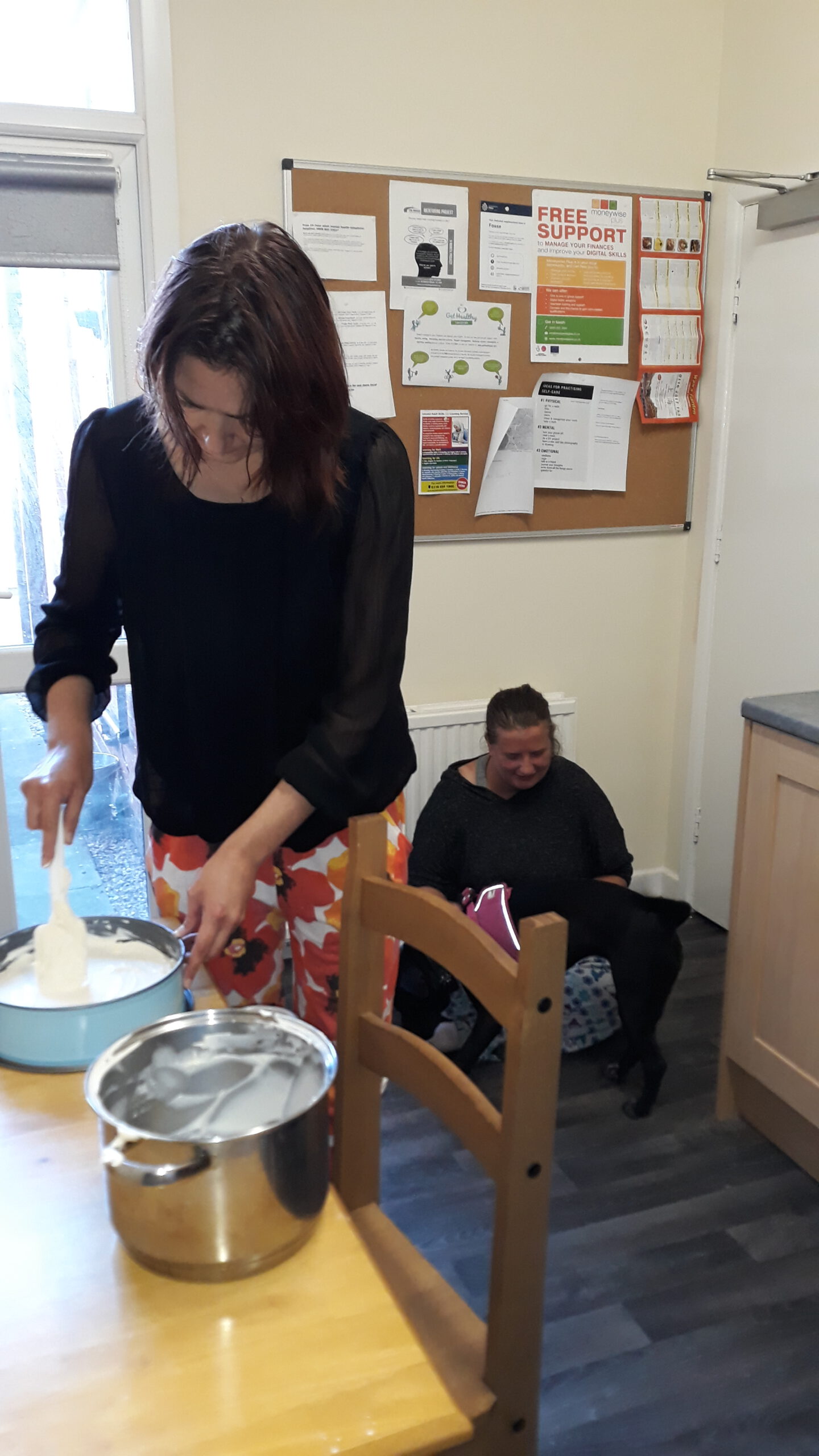
Reducing Homelessness Amongst Mental Health Service Users
Working in partnership with the local NHS Trust, our Community Transitions Project offers housing and support to people leaving mental health wards who are at risk at homelessness. It is a safe and secure environment, where staff can understand the individual needs and goals of each client and provide tailored support to help meet them.
This case study shows some of the different needs faced by clients of the Project, and how staff work to support them.
Male was referred to the Community Transitions Project in May 2019 and has a history of admissions to mental health units and a diagnosis of Paranoid Schizophrenia.
When he was discharged from the Bradgate Mental Health Unit he was unable to return to his home due to issues with a neighbour. His consultant also felt he was too high risk to go back to his property as he struggled with issues such as disengagement with staff and health professionals, substance misuse, aggression and difficult relationships with family members.
The CTP was well placed to help him as he was at risk of re-admission to hospital and of homelessness. To begin with, he was extremely suspicious of Project staff and he said that he found support sessions difficult.
When he first moved into the Project his housing application with Leicester City Council was suspended for 12 weeks due to issues with rent arrears (payments owed from previous tenancies).
Staff identified that he was in receipt of the wrong benefit; He was receiving contribution based Employment Support Allowance rather than income based ESA. Staff also helped him claim backdated severe disability premium.
Further to this, his PIP (Personal Independence Payment) should have been suspended whilst he was in hospital, but it wasn’t and this lead to an overpayment. Staff contacted the DWP and arranged a payment plan to repay the overpayment.
These were practical matters that staff worked with him to rectify that helped to build trust between them. The work down by staff to access the right benefits also helped him address his rent arrears, which allowed him move towards his goal of getting his own home close to his family in Leicester.
In time, staff found it easier to provide support to him and he appeared slightly more comfortable talking to them. His room was often chaotic, and staff prompted him to clean and tidy on a weekly basis. They also tried to encourage the client to go out more and participate in communal activities as he often isolated himself in his room, but he told staff he enjoyed his own company.
Staff also had work with his Community Psychiatric Nurse and helped make sure his prescriptions were ordered and that he was aware of appointments.
He signed and moved to his new home in March 2020. As part of the support provided to him, Project staff assisted him with registering his utilities and reported his change of address to the DWP. Staff also helped him to apply for council tax support and enrol on the electoral register.
As part of the move-on support provided by CTP, staff recently contacted him to see how he was settling in. He said he is happy with his new flat and felt like it was a new beginning for himself.